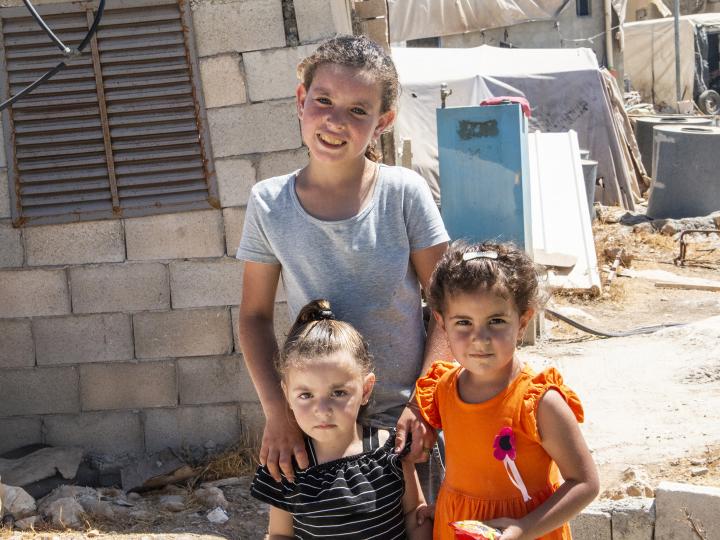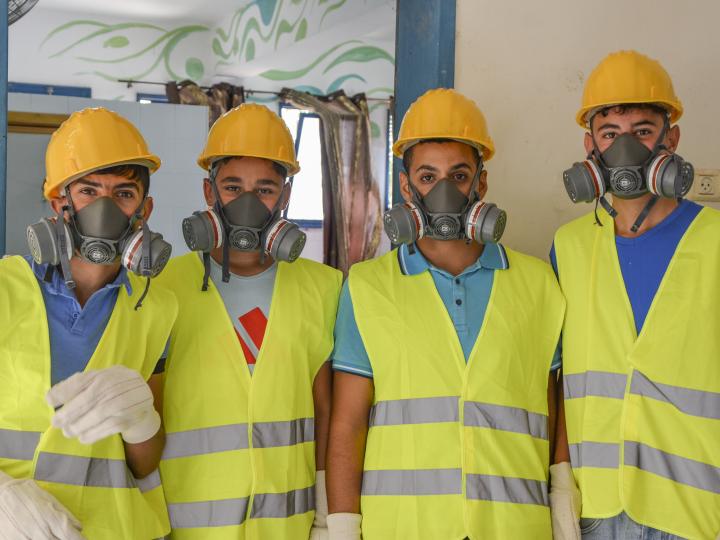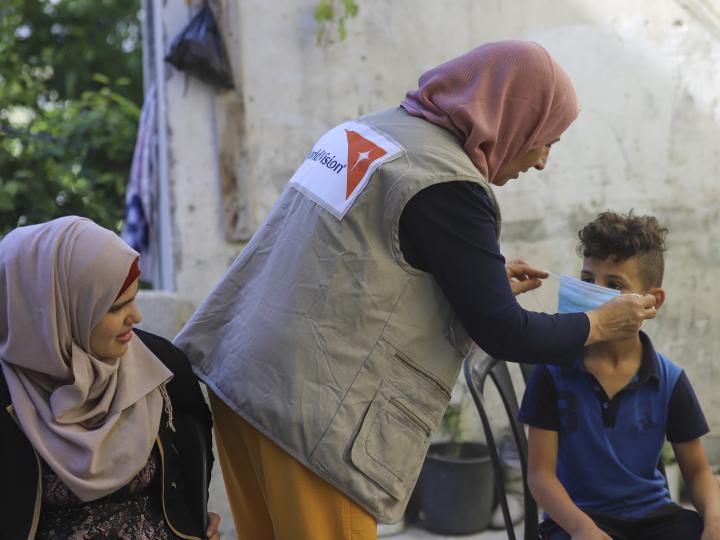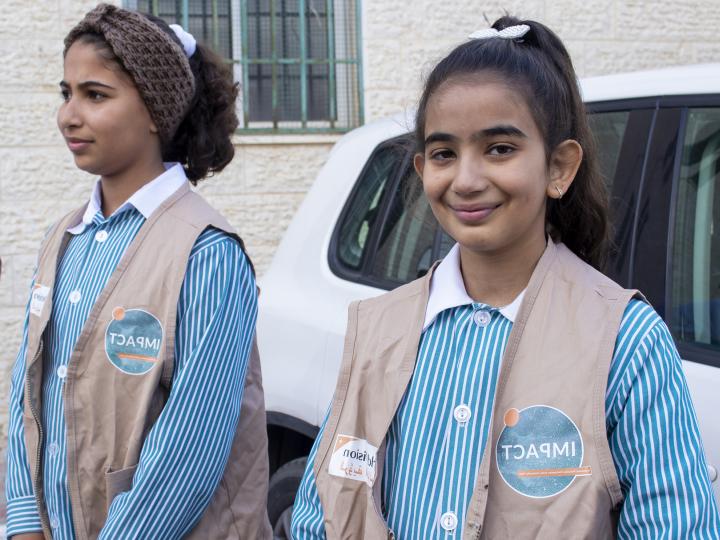
Strengthening Fragile Communities
200,000+kg of CO2
30,881
600+
Community Resilience
Many Palestinian communities live under high levels of fragility and vulnerability so it is critical to strengthen their resilience and their ability to mitigate and manage disasters so they can ‘bounceback’ after various shocks. Through programming in Education in Emergencies (EiE), community-based disaster management, various clubs for children that teach critical life skills, and advocacy, World Vision helps children, duty bearers, and villages:
have hope, self worth, and a sense of purpose
feel empowered and equipped to bring about change
reduce conflict through enhanced community cohesion and acceptance
prepare for and respond to disasters, shocks and violence
improve access to essential services such as water, sanitation, electricity, and education
have improved access to government disaster management systems

Education in Emergencies and WASH
Education in Emergencies and WASH
We partner with the Ministry of Education and village councils to ensure children living in vulnerable areas, particularly Areas B and C, continue to access their right to safe, quality education, even in times of conflict and crisis. Activities are designed to provide children with physical, psychosocial and cognitive protection that can be life sustaining and lifesaving.
World Vision has trained over 100 school counselors to address the needs of children who are potentially exposed to violence through psychosocial support, drama and arts programmes. World Vision has rehabilitated schools taking into consideration safety measures by building fences to protect children from conflict and other hazards and installing safety shields over schools. We have also supported communities in the building of safe play areas and playgrounds as well as enhanced WASH facilities in schools, including latrines, drinking water, and other critical hygiene education. For example, World Vision, in partnership with War Child, is implementing a programme called, ‘SAFE’, which targets 50 schools through ECHO funding in order to increase safe access to schools and psycho-social support for children in the West Bank. To learn more about the SAFE project, click here.
We continue to promote students’ well-being through integrating extracurricular activities within the schools’ daily schedule: over 60 teachers and 12 supervisors were provided with the needed training to support schools in mitigating risks and in collaboration with the civil defense, 120 schools were provided with simulation training on fire and earthquake hazards.
With funding from BMZ through for the ‘Promoting Environmental-Friendly Practices and Green Schools in Palestine’, we installed 173 solar panels on schools in Area C to enable access to continuous electricity. Many schools lack access to energy networks. To date, we installed 22 solar energy systems on the roof of 22 governmental schools with a total capacity of 173 KW. The solar systems provide energy-saving techniques to reduce CO2 emissions by installing 173 kW solar energy systems that generates clean energy of around 294,100 kWh per year and reduces 205,870 kg of CO2 per year. In addition, 37 schools have also adopted ‘green initiatives’ to improve schools grounds, enhance care for the environment, and to educate in critical sciences. To learn more about the project and its impact, click here.

Community-Based Disaster Risk Management
Community-Based Disaster Risk Management
World Vision works to help communities prepare to mitigate the effects of disasters as well as responds to emergencies, such as COVID-19. Our programmes include helping both schools and communities to develop safety and contingency plans as well as other training such as first aid. The support is critical, especially as emergency services cannot access all communities and some communities require an hour to reach them. In FY20 alone, we supported 601 institutions with support for COVID-19. Institutions include churches, mosques, quarantine centers, hospitals, clinics, village councils and community centres. Support includes psyscho-social support as well as disinfectant, masks, and prevention knowledge.

Innovation, Motivation, Participation, Action, Community Teams (IMPACT+ Clubs)
Innovation, Motivation, Participation, Action, Community Teams (IMPACT+ Clubs)
World Vision aims to build the resilience of youth and transition adolescents (aged 12-18), especially the most vulnerable, into adulthood as active citizens empowered with competencies, values, confidence and social connectedness through an evidence-based practice, IMPACT+. The model is a club-based and is focused on leadership, active citizenship, employability, and social entrepreneurship.
IMPACT+ is a relatively new model for World Vision, but has been found to bring statistically significant results in as short as 12 months in other countries in the Middle East and Eastern European region. For example, in Armenia, 80.5% of adolescents had a pessimistic character, but after implementing the IMPACT approach, 74.4% of these struggling adolescents shifted to having an optimistic character.
In FY21, 30 active IMPACT+ Clubs in the West Bank implemented 111 community service learning projects that benefited 30,881 people. The projects, which included important activities to provide prevention of COVID-19 and other support to vulnerable children, demonstrate the valuable role of youth in enhancing their community’s resilience. To learn more about the power of IMPACT+ Clubs, listen to these adolescent girls in this video.